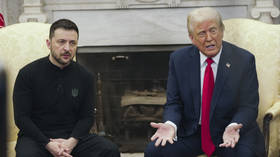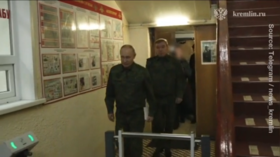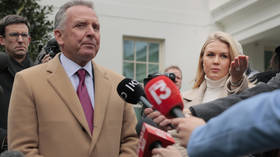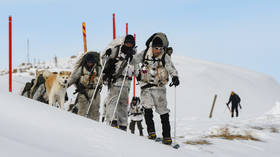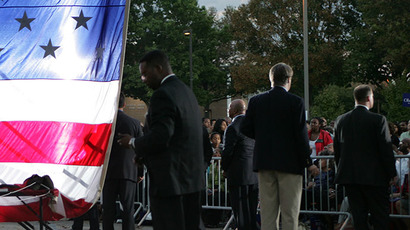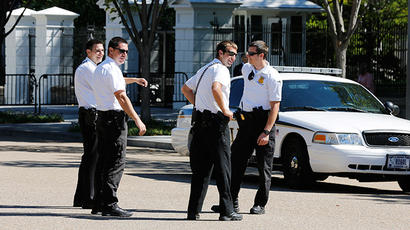Secret Service prostitution scandal investigator resigned after being accused of paying for sex
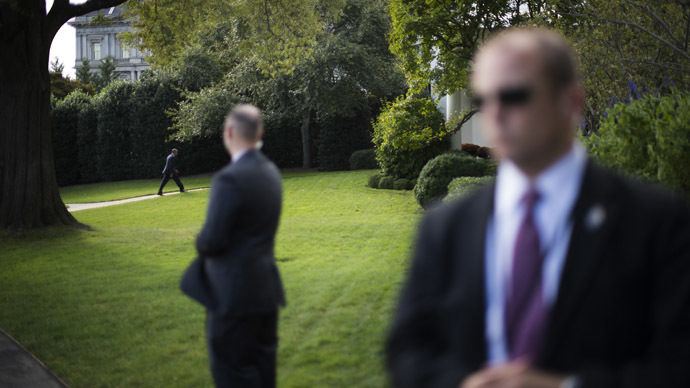
Weeks before the director of the Secret Service resigned earlier this month, the investigator tasked with probing the 2012 prostitution scandal involving that agency quit quietly after being accused of paying for sex himself.
The New York Times was the first publication to report on Tuesday this week that David Nieland resigned from the United States Department of Homeland Security — the office that oversees the Secret Service, among other agencies — after he was approached by supervisors about alleged misconduct involving a Florida prostitute.
Previously, Nieland served as the lead investigator in charge of examining the 2012 incident in which several members of the Secret Service were accused of patronizing prostitutes while in Colombia ahead of US President Barack Obama’s arrival for a conference there. Ultimately, the DHS Office of Inspector Generator report led by Nieland concluded that 13 members of the Secret Service had “personal encounters” with Colombian nationals during the trip, and several agents with the president’s security detail resigned as a result of the scandal.
According to the Times’ Michael Schmidt, Nieland resigned this past August when the DHS was made aware of similar allegations concerning his own behavior, albeit in the United States.
“Sheriff’s deputies in Broward County, Fla., saw David Nieland, the investigator, entering and leaving a building they had under surveillance as part of a prostitution investigation, according to officials briefed on the investigation. They later interviewed a prostitute who identified Mr. Nieland in a photograph and said he had paid her for sex,” Schmidt reported.
When the DHS inspector general inquired with Nieland about the alleged incident, the investigator reportedly resigned in lieu of supplying answers, wrote Schmidt.
When reached by the Times, a spokesperson for that office said that department officials “became aware in early May of this year of an incident in Florida that involved one of our employees,” but did not cite Nieland specifically.
“While the law prohibits us from commenting on specific cases, we do not tolerate misconduct on the part of our employees and take such allegations very seriously,” the spokesman, William O. Hillburg, told the newspaper. “When we receive information of such misconduct, we will investigate thoroughly, and, during the course of or at the conclusion of such an investigation, we have a range of options available to us, including administrative suspension and termination.”
“The allegation is not true,” Nieland told the Times.
According to an article published by the Washington Post this week, Nieland was among a group of three Obama administration staffers that spoke up about an apparent request from the White House to make changes to the inspector general report concerning the Colombian trip. Earlier this month, the Post reported that Nieland claimed he was asked by the White House to hold off on publishing the inspector general’s report as part of a purported political strategy. Now, this week’s Post article suggests that Nieland’s attempt to speak out about the White House’s alleged request may have had some unintended consequences as well.
“We were directed at the time . . . to delay the report of the investigation until after the 2012 election,” the Post previously quoted Nieland as having told Senate staffers. According to the paper, Nieland and two others “were put on administrative leave after raising concerns and said they viewed the leave as retaliation.”
“One of the three made a formal complaint to the Office of Special Counsel, which reviews whistleblowers’ allegations,” the Post reported. “The office reached a preliminary conclusion that it appeared the employee had been subjected to retaliation.”
According to Nieland, superiors told him “to withhold and alter certain information in the report of investigation because it was potentially embarrassing to the administration.” Subsequent reports concerning security breaches at the White House have since achieved as much, however, as well as the resignation of Pierson. When reports concerning the Colombian trip first surfaced in 2012, the director of the Secret Service was replaced by a longtime employee, Julia Pierson, with the aim of having her repair the agency’s ravaged reputation. A series of reports in recent weeks concerning ineptitude within the force raised new concerns, however, and caused Pierson to offer her resignation on October 1.



